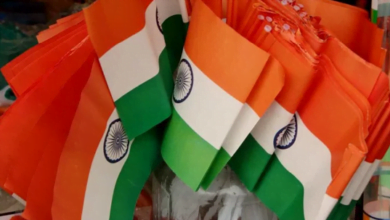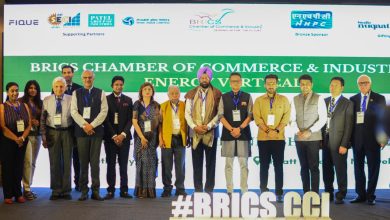

The Uttar Pradesh Police killed gangster-turned-politician Atiq Ahmed’s son Asad and the son’s aide Ghulam, both of whom were wanted in connection with the Umesh Pal murder case, in Jhansi on 13 April, the day when Atiq Ahmed, also an accused in the murder case, was produced before a court in Prayagraj. Atiq Ahmed was brought to Prayagraj from Sabarmati Jail in Gujarat by road, for his production. Atiq Ahmed’s brother, Khalid Azim alias Ashraf, was also in the Prayagraj court when the news of the Jhansi encounter broke. Ashraf had been brought for production from a jail in Bareilly. Soon after the encounter with the UP Special Task Force (STF), there was jubilation in many quarters, which thanked Chief Minister Yogi Adityanath for “serving justice”. Out of the top thirty trends on Twitter on the evening of 13 April, eleven were related to the encounter. Adityanath’s outrage in the UP State Assembly over attack from the Opposition for the Umesh Pal murder in broad daylight in Prayagraj – Mafia ko mitti me mila doonga [will eliminate mafias] – became a trending hash tag on the microblogging platform.
Umesh Pal, an advocate and a key witness in the 2005 murder case of BSP MLA Raju Pal, and his police security guards were shot dead outside his home in Prayagraj’s Dhoomanganj area on 24 February this year. Five people involved in the daylight murder – Vijay Chaudhary alias Usman, Arbaaz, Asad Ahmed, Ghulam, and Guddu Muslim – were caught on camera. Four of these men, including Asad, have since been killed in police encounters; the fifth, Guddu Muslim, continues to abscond. Umesh Pal’s family accused Atiq Ahmed, his wife Shahista Parveen, brother Ashraf, Atiq’s son Asad and others behind the death. Shahista Parveen is also on the run.
Umesh Pal had earlier filed a police complaint in 2007, alleging that he was being regularly threatened and pressured by Atiq and his aides to change statements in the court in the Raju Pal murder case. He also claimed to have been kidnapped and tortured by Atiq. Based on his complaint, the Prayagraj police registered an FIR against Atiq, his brother Ashraf and others. On March 28 this year, Atiq Ahmed and two others were sentenced to life imprisonment in this kidnapping case. Incidentally, this is Atiq’s first conviction despite his alleged decades-long association with crime. Umesh Pal may have been killed to secure acquittal in the Raju Pal murder case. Atiq Ahmed and other known mafias in Uttar Pradesh and elsewhere evade conviction by either browbeating witnesses into turning hostile or eliminating them.
When Atiq Ahmed was being brought from the Sabarmati jail for production in the Umesh Pal kidnapping case, Indian television channels went into frenzy, deploying multiple reporters to follow the police van taking Atiq by road and not missing any action en route, including shots of the man peeing on the roadside. The road journey was a full-day charade on news channels. People glued to their TV sets for updates kept wondering when the police van carrying Atiq Ahmed would topple, or when Atiq Ahmed would try to escape with police weapons and get killed in the ensuing exchange of fire. This is what happens – or so the police make us believe – in encounters in which alleged criminals are gunned down. Remember gangster Vikas Dubey, who tried to escape after the police vehicle moving him from Madhya Pradesh toppled and got killed. Imagine the bloodthirst of television viewers, waiting for the news of Atiq Ahmed’s killing to break.
This is the image Yogi Adityanath has made for himself – that “criminals” in his rule are not put through the due process of law but killed for instant justice. Asad is the 183rd accused to have been killed in police cross-firing since the Yogi Adityanath government took charge in March 2017. The Yogi government flashed the number of encounters as one of its achievements on Republic Day in 2019 and asked the district magistrates to make the common man aware about this achievement. This was the same month in which the outrage over the rise in encounters in India’s most populous state prompted the Supreme Court to comment that encounter killings of alleged criminals in UP was a “serious issue that requires detailed hearing”.
Yogi did not pay much heed to the apex court’s comments and continued to “punish” the “guilty” in the manner that he likes to do it. The monk has thus become the favourite of the constituency that he wants to cater to. But this raises a very pertinent question about the judicial process of delivery of justice. Have we lost faith in this system and prefer to allow the police to deliver justice because the trials are too long a process? If this is true then this is a dangerous trend – police have killed accused, not convicts; and even innocent people could be labeled as accused. It is true that the judicial process is long – and even frustrating to the victim families – and there’s often public despair if justice is delayed. The police take advantage of this despair and usurp the power of judicial courts to bring people to justice.
This trend is not limited to Uttar Pradesh. How can we forget cheering crowds showering flower petals on police personnel after four accused in the Hyderabad rape-murder case of a vet were shot dead by the Telangana police in December 2019? Or, the 2008 police action in Warangal against three youths suspected to have attacked two engineering students with acid? Encounters do provide salve for the wounds of the victim families – after Jhansi encounter today, Umesh Pal’s mother and wife have thanked CM Yogi Adityanath – the quick action by the police cannot be the norm so far as the protocols are concerned. Police encounters can best be called revenge actions, not justice.
But the government needs a serious introspection on why people cheer such encounters. It needs to immediately do three things: one, appoint more judges to reduce backlog of cases in courts and fast-track trials; two, push investigators to arrest the offenders as quickly as possible; and three, make a robust witness protection scheme.








